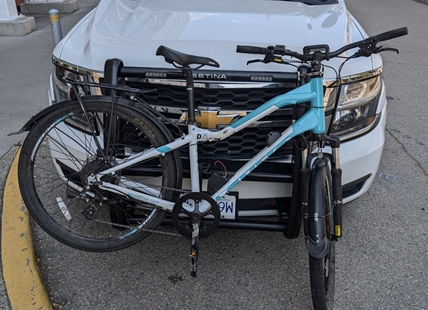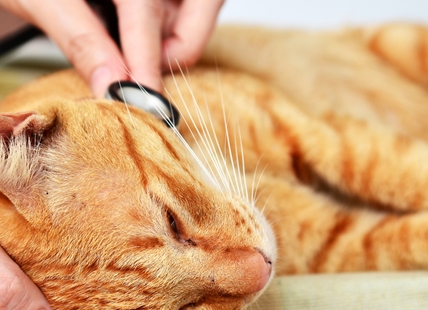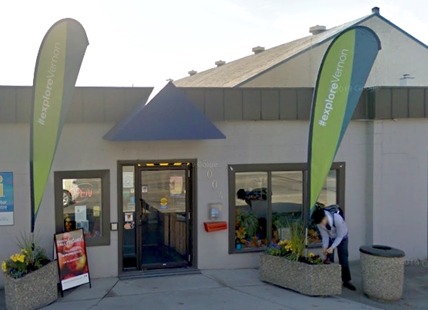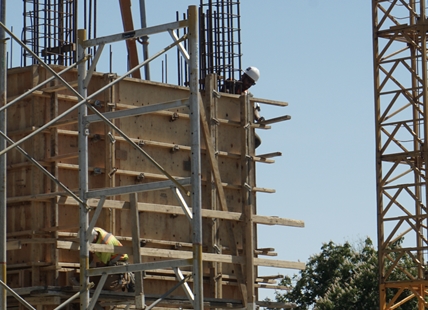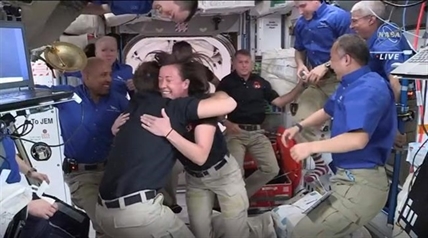Penticton RCMP struggling with big increase in mental health calls
RCMP officers are responding to mental health-related calls in Penticton twice as often as their counterparts across the Okanagan. Supt. Brian Hunter of the Penticton RCMP presented his quarterly report at the regular council meeting this afternoon, Feb. 1. Hunter told council his...
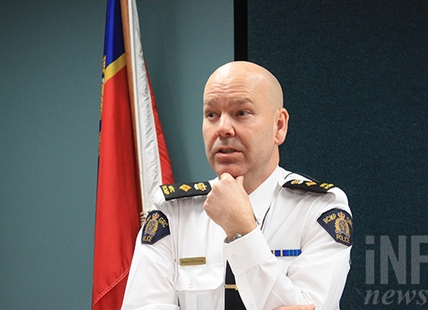
RCMP officers are responding to mental health-related calls in Penticton twice as often as their counterparts across the Okanagan.
Supt. Brian Hunter of the Penticton RCMP presented his quarterly report at the regular council meeting this afternoon, Feb. 1.
Hunter told council his officers are not trained in mental health.
“We’re trained in solving crimes and arresting people and holding them to account," he said, adding calls related to mental health are a significant drain RCMP resources.
Hunter realizes mental health issues are becoming a bigger problem for many RCMP detachments but says Penticton has been disproportionately affected.
“It is not appropriate for me to discuss the actual umbers in Kelowna, Kamloops and Vernon – that’s for their officers in charge to discuss with their elected officials,” he said. “But I can tell you, on a per capita basis, we respond to twice as many mental health calls as those other communities.”
READ MORE: Penticton plans to hire 3 more RCMP officers in 2022
The number of calls for service related to mental health was 1,473 in 2019. In 2020, a 19% increase drove that number up to 1,752, and then in 2021 there was a 28% increase leading to a total of 2,240 calls.
“That’s over six a day,” Hunter told council. “It is occupying a significant amount of our members’ time dealing with what I would call a medical crisis in the community, addictions and mental health.”
While Penticton had a 28% increase in mental health calls between 2020 and 2021, the RCMP detachments in Kelowna, Kamloops and Vernon only saw an increase of 5% over the same time period, he said.
Hunter said at 8 a.m. one day last week, “every single uniformed police officer in this city was tied up on a call related to mental health. Every single officer.”
READ MORE: iN VIDEO: RCMP ask for help to identify men seen with Penticton murder victim
He’s reached out to the experts at Interior Health, who he said agreed Penticton’s “frequent fliers” need get the mental health services they need.
Councillor Julius Bloomfield asked if officers can team up with nurses from Interior Health to respond to mental health calls.
Hunter said there is no plan in place for nurses to ride along with officers but he loves the idea and is pushing for it to happen.
Councillor Katie Robinson wondered how much the large increase in mental health related calls is a result of Interior Health’s decision to pull funding from Pathways Addictions Resource Centre last year.
Interior Heath's decision to cut funding for Pathways was a "grave mistake" and "absolutely pathetic," councillor James Miller said. He wondered if the local RCMP can hire a nurse without partnering with the health authority.
READ MORE: RCMP looking for witnesses after shots fired in alley behind Penticton motel
But even if Interior Health did send nurses to respond to mental health issues in Penticton, Mayor John Vassilaki said that would still tie up an officer.
“Maybe Interior Health isn’t trusted by a lot of folks, what can we do to change that situation?” Vassilaki said. “I’m not an expert in these things I’m just a small politician... so is there anything we can do to alleviate the problem we’re having in the community?”
Hunter said officers would benefit in most of these situations if a nurse were present.
“If we have the experts there right from the get-go, likely they can diffuse that situation, where a lot of people, they see the police and they have a whole different level of response when they see a police officer versus a health nurse who they’re familiar with.”
He said responding officers are able to get back to police business faster when a mental health expert on hand.
“If they go voluntary with the nurse we don’t have two officers occupying three hours of more up at the hospital waiting for them to get admitted," Hunter said.
To contact a reporter for this story, email Dan Walton or call 250-488-3065 or email the editor. You can also submit photos, videos or news tips to the newsroom and be entered to win a monthly prize draw.
We welcome your comments and opinions on our stories but play nice. We won't censor or delete comments unless they contain off-topic statements or links, unnecessary vulgarity, false facts, spam or obviously fake profiles. If you have any concerns about what you see in comments, email the editor in the link above.

 Valandos
Valandos 









